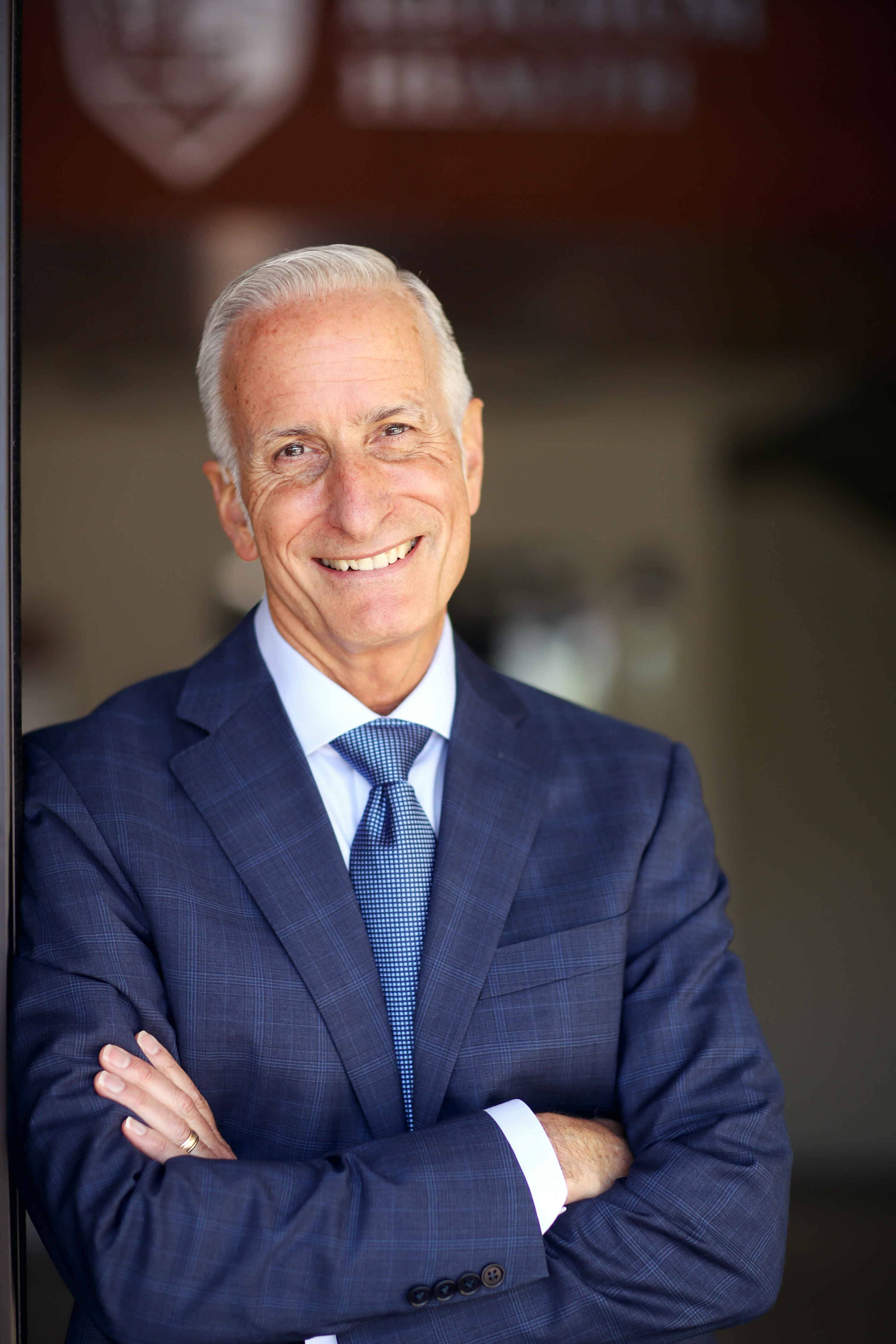Frank Scotti has enjoyed a long and distinguished career in finance and operations. After working for years at Fortune 500 and Fortune 100 companies, Frank began his own business consulting firm, quickly becoming a noted turnaround specialist. Frank then expanded his consultancy to the world of higher education, where he focused on strengthening the financials of universities. This year Frank began a new phase in his career as Marshall B. Ketchum University’s new Senior Vice President for Administration and Finance and Chief Financial Officer.
Q: Talk a little bit about your background and how that has prepared you to serve as MBKU’s Senior Vice President for Administration and Finance and Chief Financial Officer.
A: I have 30-plus years of finance and operations experience, across a number of different for-profit businesses and nonprofit institutions. Most significantly, partway into my career, I realized I wanted to try teaching as a way to give back to the community. I taught adjunct for 10 years, and while that was a challenge as I was working full time, I loved being in the classroom teaching young adults at the university level. In my business roles, I found I enjoyed things that other people found painful such as setting business systems, examining processes and procedures, developing people, and determining if organizations have healthy cultures. A great deal of my views on organizational health were developed as I was teaching, because as I developed courses, I had to explain to students what a healthy culture looked like. When I began consulting with nonprofit universities, I felt confident I could make a substantial difference, because nonprofit education is focused on the mission more than anything.
You’ve been at MBKU since March and are joining the University after a period of rapid growth and expansion. What is the University’s financial position and what will be your primary areas of focus moving forward?
MBKU is financially sound. It has a solid revenue stream, and several major investments with new programs that are providing return on investment. It also has additional potential for growth as accreditation approvals mature. Some areas of focus for me are providing finance reports and services that are relevant and of value to our organization, and educating the leadership and management team on what Financial Affairs brings to the organization and how to utilize the information we provide. I’ll also work to ensure sound financial management in compliance with GAAP and FASB requirements, ensuring that we are maximizing revenue potential, managing expenditures and establishing a plan to build reserve funds.
What do you like about working at MBKU?
I have found the majority of people here to be warm and engaging! We have a healthy and positive corporate and community culture, and I am impressed with President Alexander’s engaged and collaborative style when working with students, employees and various constituencies throughout MBKU. I am confident I’ll work well together with the senior administrative team to accomplish mutually beneficial goals in the best interest of the University.
Higher education is facing many financial challenges these days. How do you foresee these challenges applying to MBKU?
The cost of higher education continues to be a topic of news on a variety of fronts. Most institutions today are limited in how much they may raise tuition (currently about a 4% average). However, operating expenses including the cost of salaries, benefits, corporate insurances, compliance requirements and more are increasing 6-7%. We need to find ways to bridge that gap, while maintaining the quality of the educational experience for our students.
Another challenge we face is the way accreditation requirements are tightening to ensure colleges and universities are achieving acceptable educational outcomes for their students. This has occurred because of what went on with for-profit institutions in the last few years, so accreditors are trying to ensure that proper educational outcomes are consistently achieved. Thus, accreditation standards and measures are getting tougher and tougher.
Finally, we need to keep our educational programs relevant to the needs of our students and community. We must be constantly re-evaluating our delivery models to ensure our students are learning effectively, ensuring solid board testing results throughout and after their education. We need to keep our programs affordable, where students receive better value for their investment than at competing institutions.
Who had the biggest influence on the person you are today?
It has been a combination of friends, mentors and family members. One of my early bosses at a job I had in college saw a lot of potential in me and stayed in contact to offer mentorship and help beyond college, and that struck me. In college I maintained strong friendships with several people who have influenced my personal and professional career development. Growing up, my parents instilled a strong sense of organization and accountability to life that my siblings and I retain in our careers. Finally, the presidents at each of the past two educational institutions I served at (Biola University and Hope International University) assisted me in honing my skills in higher education, which has been invaluable to me.
The above experiences made me realize the importance of investing in relationships to help people develop their fullest potential as part of a high-functioning team. I try to invest in others through my leadership and sincerely care for their personal and professional development. Additionally, I was fortunate to have a mother who was a positive role model for unconditional love and acceptance for everyone she met. She always made time for people and made everyone feel important. That love for people transcended everything and remains one of the foundational influences for who I am today.

